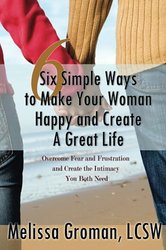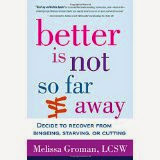
Post Traumatic Stress Disorder is most often experienced after someone has been through an event that has caused horror, intense fear, helplessness, shock and/or intense physical or emotional pain. PTSD can occur both after being part of the event, or after witnessing the event. The event can be on-going (such as war or abuse) or a one time occurance (an abuse incident, an accident).
Sometimes, however, if you have been through, or are going through an intense loss, a difficult divorce, a sudden change in a relationship, a sudden job loss, you can experience PTSD symptoms.
People with PTSD often reexperience the traumatic event. They often have flashbacks, nightmares, difficutly concentrating. Folks who suffer from PTSD may have physical and emotional reactions to triggers (such as a place, person, smell, object, sound). They are hypervigilant, or avoidant. They may have difficulty sleeping, calming down, thinking clearly. They may feel frustrated with the on going nature of their symptoms, wishing for relief but not being able to "make it stop."
Often, PTSD changes the way people feel about themselves and the world around them. Feeling joy, happiness or serenity can seem impossible.
People suffering from PTSD don't always credit themselves with the real-ness of their experience or their symptoms.
So why am I writing about PTSD? (I don't often post about disorders or diagnoses). Because I think its important not to underestimate your experiences and symptoms or downgrade your feelings. Often in my office when folks come in to talk about pains or life changes, they carry with them a lingering idea, a wish maybe, that they ought to be able to control their feelings better or that they should not feel them at all. Feeling feelings and making good decisions about if, when and how to act on them is an ideal goal, perhaps one that we have to work towards all of our lives. You can suffer emotionally and not have PTSD symptoms. You can also have PTSD and not believe you have it, and then not give your emotional life the attention it deserves and needs.
There is plenty of help for PTSD, for complicated grief, for bruised insides and the pain of difficult life transitions. We can honor ourselves and our pain by recognizing it for what it is and being willing to take good care of ourselves.











